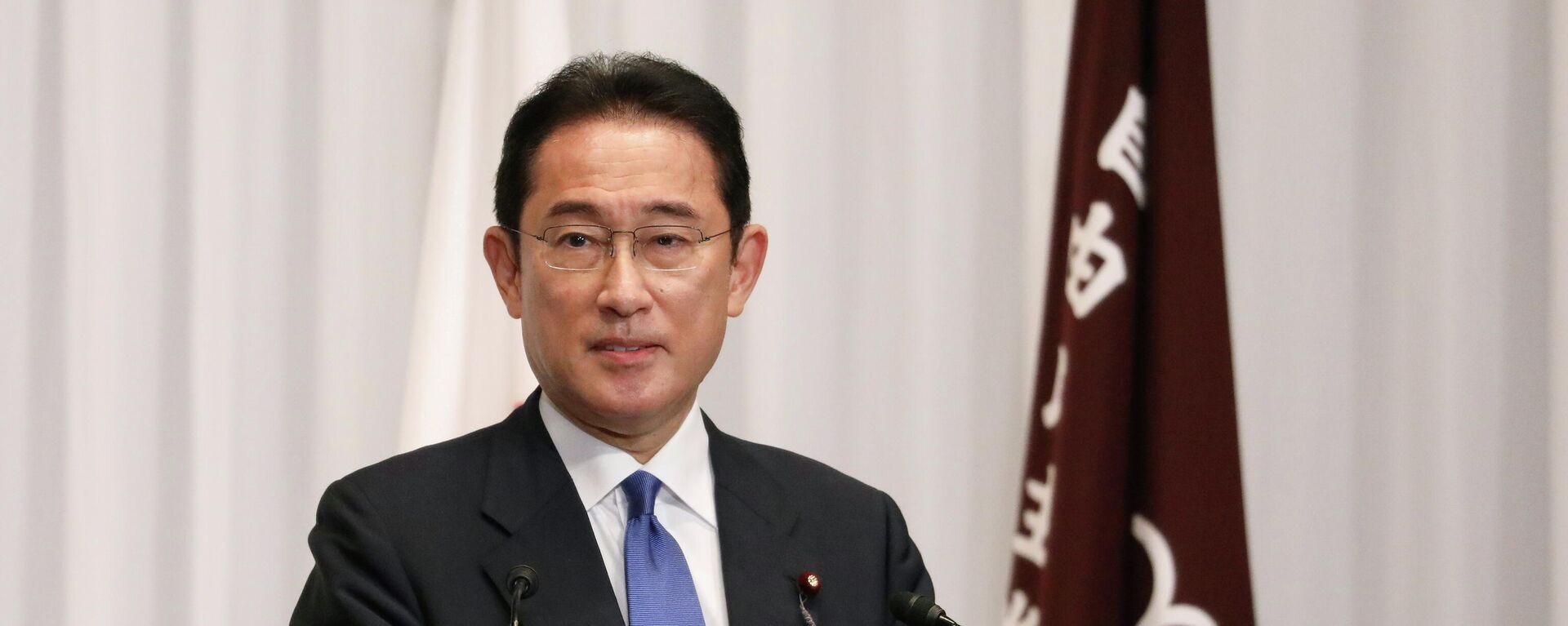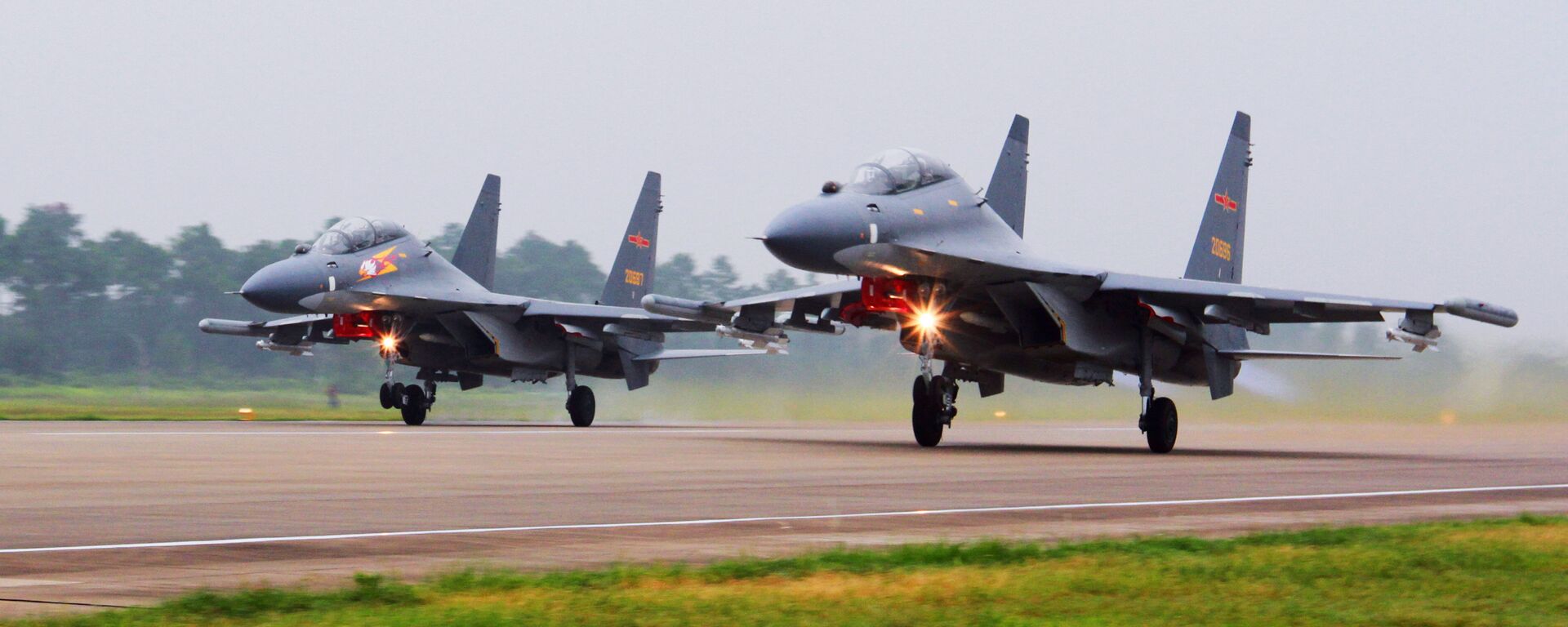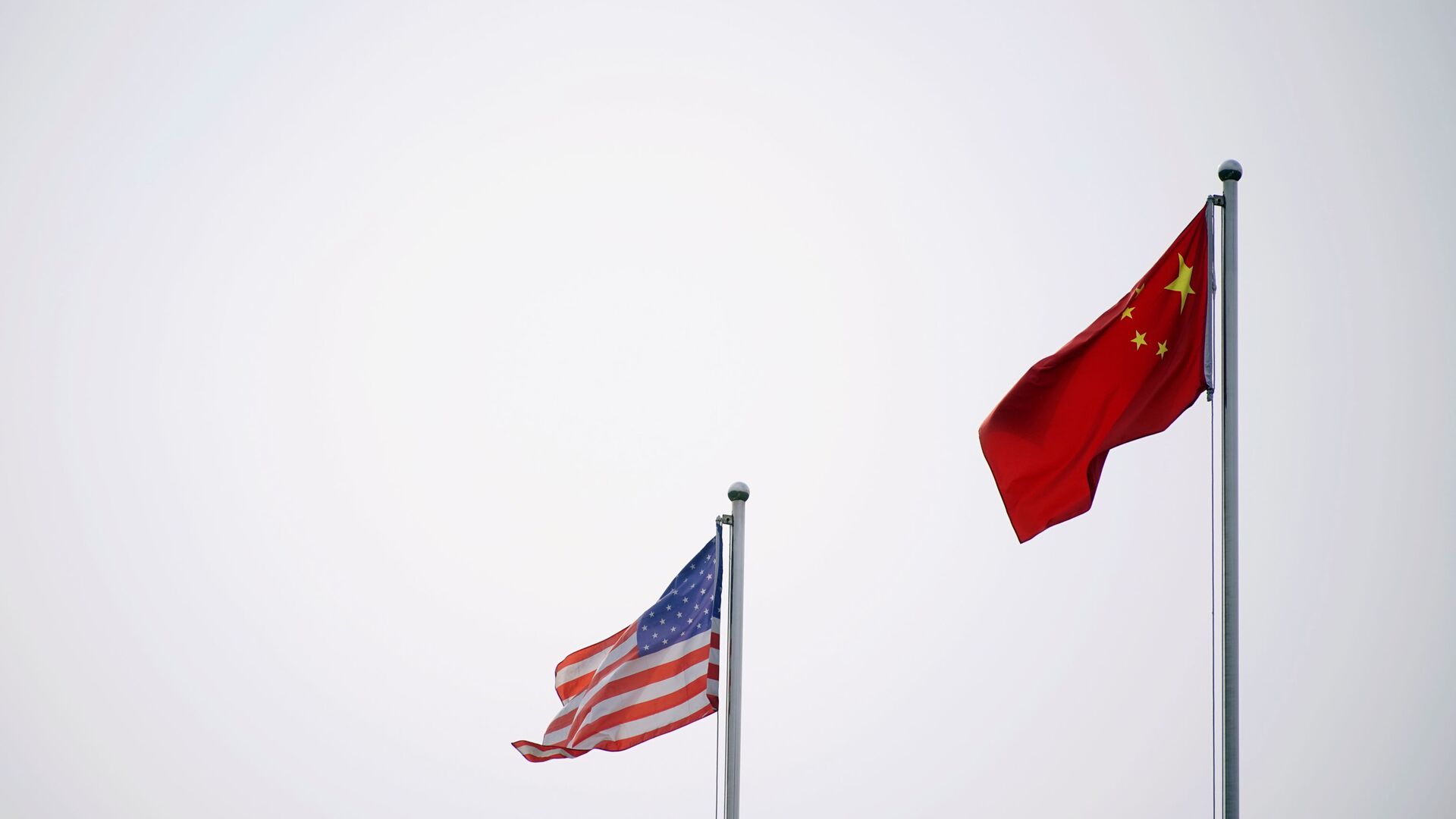https://sputnikglobe.com/20211022/aukus-will-australias-fault-lines-with-asean-limit-us-ambitions-to-contain-china-in-indo-pacific-1090028248.html
AUKUS: Will Australia's Fault Lines With ASEAN Limit US' Ambitions to Contain China in Indo-Pacific?
AUKUS: Will Australia's Fault Lines With ASEAN Limit US' Ambitions to Contain China in Indo-Pacific?
Sputnik International
The US and many European nations' turning to Asia has fuelled tensions among countries in the Indo-Pacific. With the formation of AUKUS, a trilateral alliance... 22.10.2021, Sputnik International
2021-10-22T16:04+0000
2021-10-22T16:04+0000
2022-11-15T08:57+0000
aukus
indian navy
xi jinping
asean
china
australia
south china sea
subrahmanyam jaishankar
submarine
nato
https://cdn1.img.sputnikglobe.com/img/07e5/04/12/1082660402_0:161:3071:1888_1920x0_80_0_0_211f87b7bcddb82cb8de5617a380ff15.jpg
Indonesia and Malaysia have expressed serious reservations over Australia's acquisition of nuclear-powered submarines under the trilateral security pact, known as AUKUS."Even though that country doesn't have the capacity for nuclear weapons, we are worried and concerned," Malaysia's Foreign Minister Saifuddin bin Abdullah told a joint news conference after a meeting with his Indonesian counterpart Retno Marsudi on Monday.The statement by ASEAN members, even after Australia last month clarified that AUKUS was merely technological cooperation to develop new defence capabilities, shows how complex the ties in South-east Asia are and how deep Canberra's strategic fault lines lie with ASEAN members. The Association of South-East Asian Nations, or ASEAN, comprises Brunei, Cambodia, Indonesia, Laos, Malaysia, Myanmar, the Philippines, Singapore, Thailand and Vietnam.Swaran Singh, a professor for diplomacy and disarmament at the Centre for International Politics, Organisation and Disarmament, at Delhi's Jawaharlal Nehru University, says that Joe Biden's and his administration's diminishing popularity at home, has led the US to pursue more Trumpian confrontationist policies towards China, pushing its alliance partners into the sudden development of AUKUS.Last week, Malaysia's Defence Minister Hishammuddin Hussein indicated that ASEAN members may come up with a joint statement that will elaborate a "shared response by member countries to AUKUS"."AUKUS definitely ruffles some ASEAN feathers because it increased the ASEAN anxiety about its perceived centrality to economic, political, and security cooperation and dialogue in the Indo-Pacific. ASEAN doesn't want this Indo-Pacific region to become a bone of contention between great powers," Major-General B.K. Sharma (retired), an expert in Strategic Net Assessment Methodology and Strategic Gaming, told Sputnik.However, experts believe that it will be challenging for ASEAN to reach consensus about AUKUS considering these countries deal with their defence requirements individually, contrary to the group's economic challenges.Will Australia Remain Firm with 'Uncertain' US?Several experts pointed out India's reluctance to add a military dimension to the Quad - an informal grouping of US, Japan, Australia, and India in the Indo-Pacific - as a reason behind the creation of AUKUS. At the same time, questions are being raised whether Australia will continue to "play at a much higher level and augment American capabilities" even as the Royal Australian Navy will receive nuclear submarines in the next 15-20 years.Barely a week after the first in-person Quad summit in Washington, Australian PM Scott Morrison noted that his country has "greatly benefited" from China's economic growth and thus "believes it is imperative to act responsibly in the Indo-Pacific region".“I don’t think India and Australia consider Quad as something that needs to be balanced in relation to China. That’s not the objective. Our objective [in] working together is to ensure that we promote a free and open Indo-Pacific, and everybody who wants to participate in that, including China, is a welcome partner in that cause,” said Morrison at an online media briefing.Morrison's reaction came against the backdrop of warnings by analysts who predicted more economic retaliation for Australia from its biggest trading partner, China. China has imposed import tariffs on Australian barley and wine and created barriers for products such as Timber and coal. These stiff actions were taken last year when Australia called for an investigation into the origins of the coronavirus.Can India, the US, or some other countries replace the economic ties Australia has with China?Analysts accused Morrison of undermining crucial trade ties with China during the economic crisis and even advised him to follow India's approach while balancing relations with the US and China.One of the main reasons for keeping Quad as a non-military group has been the uncertainty of the US policy which was highlighted, albeit indirectly, by Indian Navy chief and Foreign Minister Subrahmanyam Jaishankar in the past.A year after the Doklam stand-off with China in 2017, the then-Indian Navy Chief, Admiral Sunil Lanba, said that India was the only country in the Quad with a land border with China and "in case of conflict… nobody will come and hold your hand."Richard Maude said that regardless of the balance of opinion in South-east Asia about the new submarines that Canberra will acquire, it would be disastrous if a view took hold in the region that Australia sees the security of the Indo-Pacific as primarily a matter for larger powers in the Anglosphere. US-China Relations The US and China have agreed to hold virtual talks at leader level later this year, indicating some positive movement in the bilateral relations amid heated exchange over Taiwan and the South China Sea issue. The decision was taken after a "constructive and conducive" meeting between Yang Jiechi, Director of the Office of the Central Commission for Foreign Affairs of China, and US National Security Adviser Jake Sullivan in Zurich, Switzerland on 6 October.The two sides also held trade talks on 10 October to "create favourable conditions for the healthy development of bilateral economic and trade relations and the recovery of the world economy".A breakthrough took place on 24 September when the US Department of Justice dropped a three-year-old extradition request against Meng Wanzhou, the chief financial officer of Huawei. She was detained in Canada on fraud charges at the request of the US. This deal between US and China was held on the day Joe Biden hosted the first in-person leaders' meeting of the Quad in Washington against the backdrop of the newly created AUKUS."And the mere fact that Quad has come up and now AUKUS has come up, and Joe Biden is trying to energise the Euro-Atlantic alliance, most of these things are to balance China," Sharma added. "China is not likely to be cowed by these overtures from the US."
https://sputnikglobe.com/20211005/japans-new-prime-minister-discusses-aukus-with-australian-counterpart-reports-say-1089672581.html
https://sputnikglobe.com/20211015/china-engaging-in-major-construction-at-airbases-near-taiwan-satellite-snaps-appear-to-show-1089956459.html
china
australia
south china sea
indo-pacific
Sputnik International
feedback@sputniknews.com
+74956456601
MIA „Rossiya Segodnya“
2021
Rishikesh Kumar
https://cdn1.img.sputnikglobe.com/img/07e4/08/04/1080055820_0:0:388:389_100x100_80_0_0_40018ee210946d65d49ffba4f4c008e1.jpg
Rishikesh Kumar
https://cdn1.img.sputnikglobe.com/img/07e4/08/04/1080055820_0:0:388:389_100x100_80_0_0_40018ee210946d65d49ffba4f4c008e1.jpg
News
en_EN
Sputnik International
feedback@sputniknews.com
+74956456601
MIA „Rossiya Segodnya“
Sputnik International
feedback@sputniknews.com
+74956456601
MIA „Rossiya Segodnya“
Rishikesh Kumar
https://cdn1.img.sputnikglobe.com/img/07e4/08/04/1080055820_0:0:388:389_100x100_80_0_0_40018ee210946d65d49ffba4f4c008e1.jpg
indian navy, xi jinping, asean, china, australia, south china sea, subrahmanyam jaishankar, submarine, nato, indo-pacific, us
indian navy, xi jinping, asean, china, australia, south china sea, subrahmanyam jaishankar, submarine, nato, indo-pacific, us
AUKUS: Will Australia's Fault Lines With ASEAN Limit US' Ambitions to Contain China in Indo-Pacific?
16:04 GMT 22.10.2021 (Updated: 08:57 GMT 15.11.2022) The US and many European nations' turning to Asia has fuelled tensions among countries in the Indo-Pacific. With the formation of AUKUS, a trilateral alliance of Australia, the UK and the US, some experts have started speculating that America's long-time ambition to control China in the region is finally taking shape.
Indonesia and Malaysia have expressed serious reservations over Australia's acquisition of nuclear-powered submarines under the
trilateral security pact, known as AUKUS.
"Even though that country doesn't have the capacity for nuclear weapons, we are worried and concerned," Malaysia's Foreign Minister Saifuddin bin Abdullah told a joint news conference after a meeting with his Indonesian counterpart Retno Marsudi on Monday.
The statement by ASEAN members, even after Australia last month clarified that
AUKUS was merely technological cooperation to develop new defence capabilities, shows how complex the ties in South-east Asia are and how deep Canberra's strategic fault lines lie with ASEAN members.
The Association of South-East Asian Nations, or ASEAN, comprises Brunei, Cambodia, Indonesia, Laos, Malaysia, Myanmar, the Philippines, Singapore, Thailand and Vietnam.
Swaran Singh, a professor for diplomacy and disarmament at the Centre for International Politics, Organisation and Disarmament, at Delhi's Jawaharlal Nehru University, says that Joe Biden's and his administration's diminishing popularity at home, has led the US to pursue more Trumpian confrontationist policies towards China, pushing its alliance partners into the sudden development of AUKUS.
"The sharp response of France, which followed the statements by India and Japan welcoming the formation of AUKUS, was understandable as excessive publicity resulted in the perception of AUKUS being China-focused. Thus has put Australia on the defensive to avoid derailing it's already tense relations with China," Singh told Sputnik.
Last week, Malaysia's Defence Minister Hishammuddin Hussein indicated that ASEAN members may come up with a joint statement that will elaborate a "shared response by member countries to AUKUS".
"AUKUS definitely ruffles some ASEAN feathers because it increased the ASEAN anxiety about its perceived centrality to economic, political, and security cooperation and dialogue in the Indo-Pacific. ASEAN doesn't want this Indo-Pacific region to become a bone of contention between great powers," Major-General B.K. Sharma (retired), an expert in Strategic Net Assessment Methodology and Strategic Gaming, told Sputnik.
However, experts believe that it will be challenging for ASEAN to reach consensus about AUKUS considering these countries deal with their defence requirements individually, contrary to the group's economic challenges.
Will Australia Remain Firm with 'Uncertain' US?
Several experts pointed out India's reluctance to add a military dimension to the Quad - an informal grouping of US, Japan, Australia, and India in the Indo-Pacific - as a reason behind the creation of AUKUS. At the same time, questions are being raised whether Australia will continue to "play at a much higher level and augment American capabilities" even as the Royal Australian Navy will receive nuclear submarines in the next 15-20 years.
"The submarine deal is laden with uncertainties and unknowns – cost, risks, timelines. The state of US-China relations at the point when the first submarine sets sail can’t be known, nor the willingness of future US presidents to sustain competition with Beijing," Richard Maude, a former top Australian security official and now policy director at Asia Society Australia writes.
Barely a week after the first in-person Quad summit in Washington, Australian PM Scott Morrison noted that his country has "greatly benefited" from China's economic growth and thus "believes it is imperative to act responsibly in the Indo-Pacific region".
“I don’t think India and Australia consider Quad as something that needs to be balanced in relation to China. That’s not the objective. Our objective [in] working together is to ensure that we promote a free and open Indo-Pacific, and everybody who wants to participate in that, including China, is a welcome partner in that cause,” said Morrison at an online media briefing.
Morrison's reaction came against the backdrop of warnings by analysts who predicted more economic retaliation for Australia from its biggest trading partner, China. China has imposed import tariffs on Australian barley and wine and created barriers for products such as Timber and coal. These stiff actions were taken last year when Australia called for an investigation into the origins of the coronavirus.
Can India, the US, or some other countries replace the economic ties Australia has with China?
"We obviously want to have a very constructive engagement with China but we also understand, given the difficulties that we are facing at the moment, that there is a need for us to diversify," Australian trade and investment minister Dan Tehan said on 1 October in New Delhi.
Analysts accused Morrison of undermining crucial trade ties with China during the economic crisis and even advised him to follow India's approach while balancing relations with the US and China.
One of the main reasons for keeping Quad as a non-military group has been the uncertainty of the US policy which was highlighted, albeit indirectly, by Indian Navy chief and Foreign Minister Subrahmanyam Jaishankar in the past.

5 October 2021, 07:08 GMT
A year after the Doklam stand-off with China in 2017, the then-Indian Navy Chief, Admiral Sunil Lanba, said that India was the only country in the Quad with a land border with China and "in case of conflict… nobody will come and hold your hand."
Richard Maude said that regardless of the balance of opinion in South-east Asia about the new submarines that Canberra will acquire, it would be disastrous if a view took hold in the region that Australia sees the security of the Indo-Pacific as primarily a matter for larger powers in the Anglosphere.
The US and China have agreed to hold virtual talks at leader level later this year, indicating some positive movement in the bilateral relations amid
heated exchange over Taiwan and the South China Sea issue.
The decision was taken after a "constructive and conducive" meeting between Yang Jiechi, Director of the Office of the Central Commission for Foreign Affairs of China, and US National Security Adviser Jake Sullivan in Zurich, Switzerland on 6 October.
The two sides also held trade talks on 10 October to "create favourable conditions for the healthy development of bilateral economic and trade relations and the recovery of the world economy".
A breakthrough took place on 24 September when the US Department of Justice
dropped a three-year-old extradition request against Meng Wanzhou, the chief financial officer of Huawei. She was detained in Canada on fraud charges at the request of the US.
This deal between US and China was held on the day Joe Biden hosted the first in-person leaders' meeting of the Quad in Washington against the backdrop of the newly created AUKUS.
"I do not think in the foreseeable future there is going to be any reduction in tensions between China and the US. US is going to increase its freedom of navigation operations in the South China Sea," BK Sharma said.

15 October 2021, 18:57 GMT
"And the mere fact that Quad has come up and now AUKUS has come up, and Joe Biden is trying to energise the Euro-Atlantic alliance, most of these things are to balance China," Sharma added. "China is not likely to be cowed by these overtures from the US."





